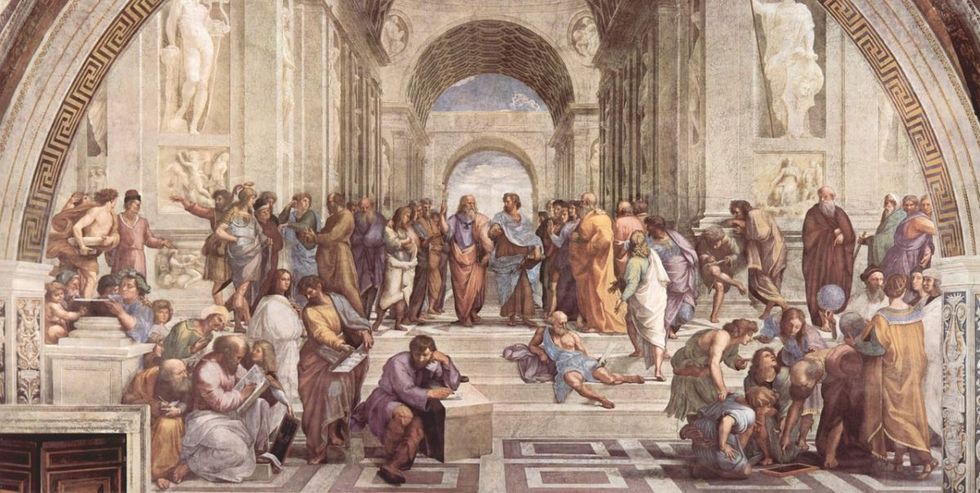When I tell people — usually fellow students — that I’m double majoring in philosophy and English literature, I joke that I usually just shorten it to a major in poverty. It usually gets a laugh, and it eliminates the awkward silence that often follows as the students who have just told me they’re majoring in finance or mechanical engineering give me the look that I know all too well means they think I’m making a mistake.
Because that’s the perception of a humanities major in society. We’ve all heard the jokes about philosophy majors. What’s the difference between a philosophy major and a large pepperoni pizza? A large pepperoni pizza can feed a family of four.
And to a certain extent, there is a rational basis behind these jokes. Humanities majors do often struggle to find high-paying work outside of college, but that is in no way a reflection of the value of the major itself.
For starters, the data is often misleading. The study cited in the article above only assesses the employment rate of recent college graduates and looks at students who only have bachelor’s degrees in their field. The majority of students who receive undergraduate degrees in “useless” majors actually go on to attend graduate school.
In terms of graduate school, humanities majors often thrive in ways their peers who majored in more career-driven fields simply cannot. If you look at the MCAT, English majors outscore chemistry, biology and premedical majors by astronomical numbers. On the LSAT, classics tops the charts in terms of scores, and both art history and philosophy consistently do well.
If you factor doctoral and professional degrees into the mix, humanities majors come out ahead of career-driven majors in terms of income and social standing.
But somehow, there is a preconception of humanities majors as worthless majors that goes beyond just the ability to find a job and the ability to make a lot of money. Because if you look at the initial salary of recently graduated political science majors, it is close to the same as recently graduated English majors, and they have similar unemployment rates. Psychology majors, too, struggle to find high-paying jobs. Yet, political science and psychology don’t receive half the flack that humanities majors do.
Perhaps it doesn’t have to do with money and it has to do with the way our society values the arts and literature in general. After all, I have never seen somebody so concerned with my financial well-being as I have after I tell them I’m majoring in philosophy. It isn’t that people actually care about how much money I’m going to make that makes them think humanities majors are worthless, it’s that I’ve decided to study something society in general sees as a hobby.
There is no denying that we live in a progress-oriented world. So much of our society and politics and international relations are focused on how we can make the world a better place, how we can achieve this goal for the future, how we can make ourselves the best. This is why STEM degrees and business degrees are seen as more valuable: they contribute to that idea of tangible progress. Scientists can develop innovative ideas and present research that can change the way we see the world. Engineers can revolutionize the way we live our everyday lives. Businessmen can build empires of commercial goods, bring glory to our economy and position America as a “supernation” in the world.
But writing? Painting? They don’t do any of that. Or at least not in a way that is seen as valuable. The arts point out the problems in our society. They display it for the world to see — warts and all. They tell a story of the way things are, not some deified imagination of how things could be. And most of all, the arts themselves aren’t seen as creating any tangible product to better society. You can’t quantify how many people were inspired by "Ulysses"the way you can quantify how many people now use electric cars. It’s simply not possible to quantify the benefits, and because of that, people assume they aren't there.
Society’s problem with the humanities major and the reason I feel the need to justify my majors or make jokes about them is not because I’m making a bad decision for myself, it’s because I have decided to break free from the notion that the arts are not valuable in our society. I have decided that the arts and humanities do better society, and I have decided that anyone who says otherwise is wrong. And any time someone challenges society, it is bound to make the adherents of the status quo uncomfortable.

















